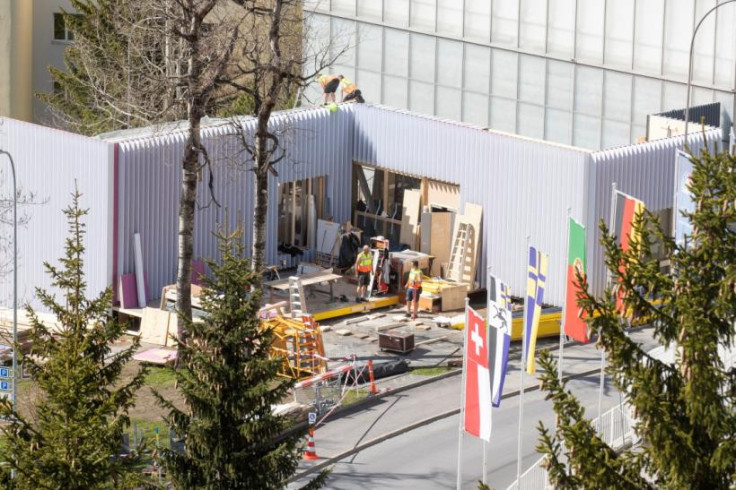Snowless Davos readies new face for World Economic Forum meeting
Simply putting on the event after a two-year hiatus is welcome news to locals, who, a 2017 study showed, benefit from a $60 million windfall every time it takes place.
Movers and shakers arriving for the annual meeting of the World Economic Forum (WEF) this month can pack sandals instead of ski boots for a rare springtime version of the event in Davos, the Swiss ski resort that is Europe's highest city.
In December, organisers postponed the meeting of government, business and other leaders just before its traditional January slot, citing the difficulties of holding an in-person conference during the coronavirus pandemic.
Simply putting on the event after a two-year hiatus is welcome news to locals, who, a 2017 study showed, benefit from a $60 million windfall every time it takes place.
"All the people here are very glad that the World Economic Forum is coming back now. It is another step back to normality," said Samuel Rosenast, spokesperson for the local tourism board.
The pandemic slammed hotels and restaurants in Davos, whose fresh air and sunlight drew sanatoriums featured in German novelist Thomas Mann's work "The Magic Mountain".
"The whole congress business was dead," Rosenast said, noting that Davos's conference centre had closed for more than a year.
Construction crews have been finishing pop-up networking facilities for the business and political elite that descend for the May 22-26 conference. Soldiers are erecting security fences.
The Swiss government will deploy as many as 5,000 military personnel to support local police. Air force jets will again circle above to enforce a no-fly zone.
Geneva-based WEF says the meeting will bring together more than 2,000 leaders and experts from around the world, somewhat smaller than some past meetings. No government or corporate bigwigs from Russia were invited, because of the Ukraine war.
Topics on the agenda include the pandemic recovery, tackling climate change, the future for work, accelerating stakeholder capitalism, and harnessing new technologies.
Svea Meyer, who runs the Kaffee Klatsch cafe in Davos and caters to clients at the meeting, was looking forward to business in May, typically in the quiet period between the end of the ski season and the start of the summer peak.
"It's a real big chance for us and we're happy to see a lot of the customers from the WEF that we haven't seen for the last two years," she said.
"It's better to have the WEF now in spring than not having it at all," she added, seeing the bright side of showing off the warmer face of a place better known for winter sports.
"We don't have to shovel."
© Copyright Thomson Reuters 2022. All rights reserved.

Copyright Thomson Reuters. All rights reserved.






















